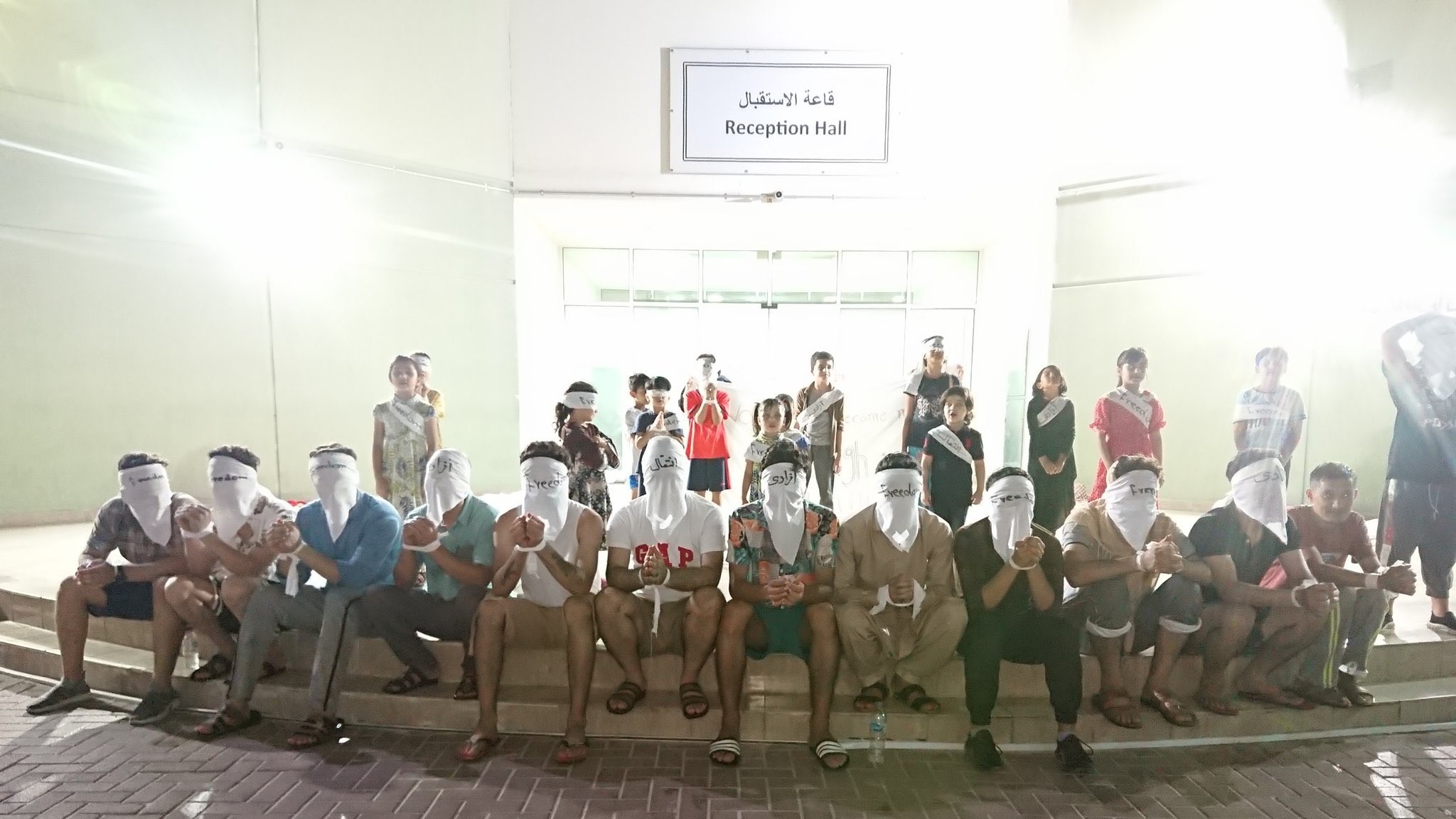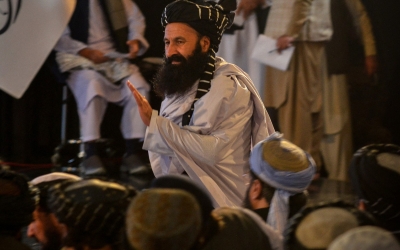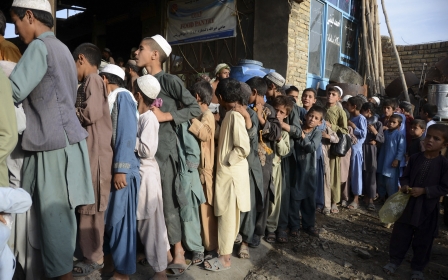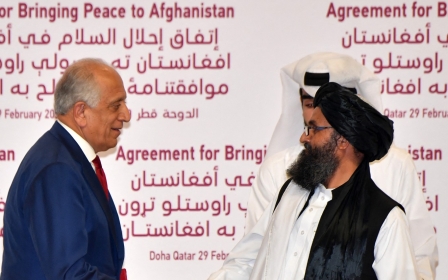Afghan refugees in UAE protest against uncertainty and 'prison-like' conditions

Afghan refugees in a United Arab Emirates camp have staged a protest against uncertainty and delay in their attempts to permanently resettle in the United States and other third countries.
Tens of thousands of Afghans have been living in Emirati temporary facilities since August last year, when the Taliban took control of their capital, Kabul, following the withdrawal of American troops from Afghanistan.
Videos posted on social media on Monday and Tuesday showed hundreds of refugees, including scores of women and children, marching at the Emirates Humanitarian City (EHC) in Abu Dhabi, holding banners and chanting slogans. One banner said the women's mental health was under threat, while another called for an “End [to] one year limbo situation in EHC”.
The refugees chanted “we want justice” and “intiqaal [transfer to] America”, calling for an urgent change to their unresolved status. Previous protests in February prompted a visit by a US State Department official, who said that by August 2022 all the Afghans there would be resettled.
New MEE newsletter: Jerusalem Dispatch
Sign up to get the latest insights and analysis on Israel-Palestine, alongside Turkey Unpacked and other MEE newsletters
Over 10,000 Afghan refugees have been transferred from the EHC facility to the US over the past year, but the resettlement process for thousands of others temporarily living in the Emirates has since stalled.
Several men and children were pictured with their wrists tied up and blindfolds over the face emblazoned with “Freedom”, in apparent condemnation of the living conditions in the UAE camps.
"Nearly one year we have been here in detention, and the camp is like a modern prison. No one is allowed to go out, they don't know when we will be settled permanently to any country," one Afghan evacuee told Reuters.
'You won't be sent back to Afghanistan'
On Monday, #AfghanEvac, a coalition of volunteer groups lobbying the US government on behalf of Afghan refugees, apologised to displaced people in EHC but questioned the effectiveness of the protests.
“We are so sorry you have been there for such a long time with such uncertainty,” it said in a Twitter thread. “You will be resettled. You will not be sent back to Afghanistan.
“Protesting is not going to help your situation and it’s only going to make processing more challenging,” it added.
The coalition acknowledged the feelings of the demonstrators, but said that “conditions at EHC are far better than most refugee camps around the world and you haven’t come close to the average stay most experience”.
An Emirati official said that Abu Dhabi was working with the US embassy to resettle Afghans in America and elsewhere, but that the resettlement process was taking longer than it had wanted.
Meanwhile, a US State Department spokesperson said that Washington was “relentless” in its efforts to identify those who qualified for resettlement in the US, while also cooperating with the UAE and others to explore “resettlement options” for those ineligible to move to the US.
The UAE has emerged as a key power broker in Afghanistan since the Taliban took charge in the country a year ago, rivalling regional neighbour Qatar’s influence.
Abu Dhabi has re-cultivated personal networks with the Haqqani network, a powerful faction within the Taliban movement that has emerged as the kingmaker in Kabul since September 2021.
In May, following months of talks between the Taliban, Qatar and Turkey over managing Afghanistan’s airports, the UAE emerged as the preferred partner for the deal.
Middle East Eye delivers independent and unrivalled coverage and analysis of the Middle East, North Africa and beyond. To learn more about republishing this content and the associated fees, please fill out this form. More about MEE can be found here.





